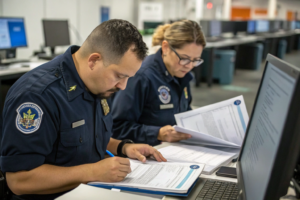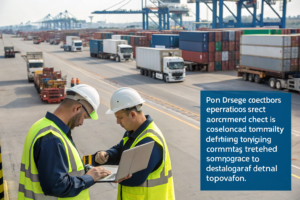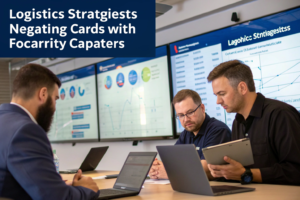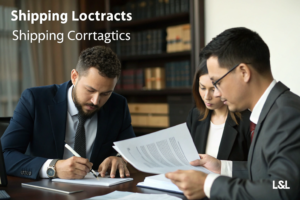Trade in 2025 is more complex than ever. New global tariff policies are disrupting supply chains. Exporters and importers must adapt—fast. If you don’t adjust, your costs may spike. You may hit delays or lose market access.
This guide explores major 2025 tariff updates—from the U.S., EU, ASEAN, China—and shows how buyers, brands, and distributors can adjust freight strategies. Learn where to expect changes and how GeeseCargo’s freight expertise keeps your costs low and compliance high.
What Major Tariff Changes Are Happening in 2025?
Trade tensions continue. The U.S. and EU raised tariffs on key goods. China adjusted export rebates. ASEAN revised regional duties.
Exporters should review these updates now. They directly affect landed cost, trade terms, and customs strategy.

Which Countries Increased Tariffs?
The U.S. imposed new duties on steel, solar panels, and EV components under Section 232 and 301. The EU raised tariffs on AI chips and electric vehicles. China reduced some export tax rebates on apparel and toys.
Explore resources from the U.S. International Trade Commission and the EU Tariff Database for full lists.
How Has ASEAN Updated Its Tariffs?
ASEAN members adjusted import duties on automobiles, cosmetics, and processed foods under ATIGA updates. In 2025, several countries temporarily increased tariffs to protect domestic producers. Watch official ASEAN updates at ASEAN Secretariat Trade.
How Should Incoterms Be Rethought After Tariff Cuts?
Tariff changes shift cost burdens. Using smart Incoterms lets you manage risks and responsibilities. Choosing the wrong term can cost thousands.
By aligning Incoterms with tariff changes, you control who handles duties—and when. That helps budgets and trust.

Should You Use CIF Instead of DDP?
With tariff hikes in Europe and the U.S., DDP may now be too risky. CIF (Cost, Insurance, Freight) lets buyers handle import duties. This can reduce forwarder liability and simplify your pricing model.
Check Incoterms details from the ICC Incoterms 2020 guide.
Is EXW a Better Option Now?
EXW places full responsibility on your buyer. If duties are volatile, EXW ensures you're not exposed to unexpected fees. It forces buyers to know import processes—ideal for experienced distributors.
Can Bonded Processing and FTAs Offset Tariff Hits?
Yes. Bonded zones offer flexibility. FTAs can eliminate or lower tariffs—if your shipment qualifies.
Use bonded processing or FTAs to reduce effective tariff rates. That can boost margins or pricing power.

Which FTAs Matter Most in 2025?
Important agreements include USMCA, CPTPP, EU-Mercosur FTA, ASEAN-China FTA, and RCEP. Each has its rules of origin and documentation requirements. Compliance lets you access duty-free or reduced tariffs.
Consult official texts and certification rules via the USMCA portal and CPTPP site.
How Do Bonded Warehouses Work?
Exporters can import components duty-free into bonded zones. Assembly or packaging occurs, then goods exit as export. Duties apply only on final goods. Many use this for auto parts, electronics, or clothing bundles.
Look into bonded hubs like Port Klang FTZ, Vietnam’s VSIP, or the Shanghai Free Trade Zone.
How Can Freight Forwarders Turn Policy into Strategy?
Freight forwarders are more than shippers. We help you plan. We share data, update you, and suggest smart alternatives.
With policy in flux, you need a partner who knows routes, customs, and cost mechanics. That partner is GeeseCargo.

Can Freight Forwarders Provide Tariff Forecasts?
Yes. We track policy changes across key markets. We create forecasts and simulations. Clients use these insights for budgeting and contract terms. Tools like CalcTari or our internal systems help.
Will They Propose Route and Term Changes?
Freight partners suggest rerouting through compliant FTAs, switching to bonded options, adjusting Incoterms. They simulate how each change affects landed cost before you ship.
Conclusion
Global tariff updates in 2025 are reshaping freight strategy. Exporters must rethink Incoterms, bonded options, and compliance channels. Ignoring policy shifts hurts profits and disrupts supply chains.
With GeeseCargo, you get a logistics partner that tracks policy, simulates changes, and helps implement efficient freight plans. If you want guidance tailored to your trade lanes—or need help modeling your landed cost under new tariffs—contact Ben Zhu at benzhu@geesecargo.com. Let’s work together to keep your trade efficient and profitable in 2025.









